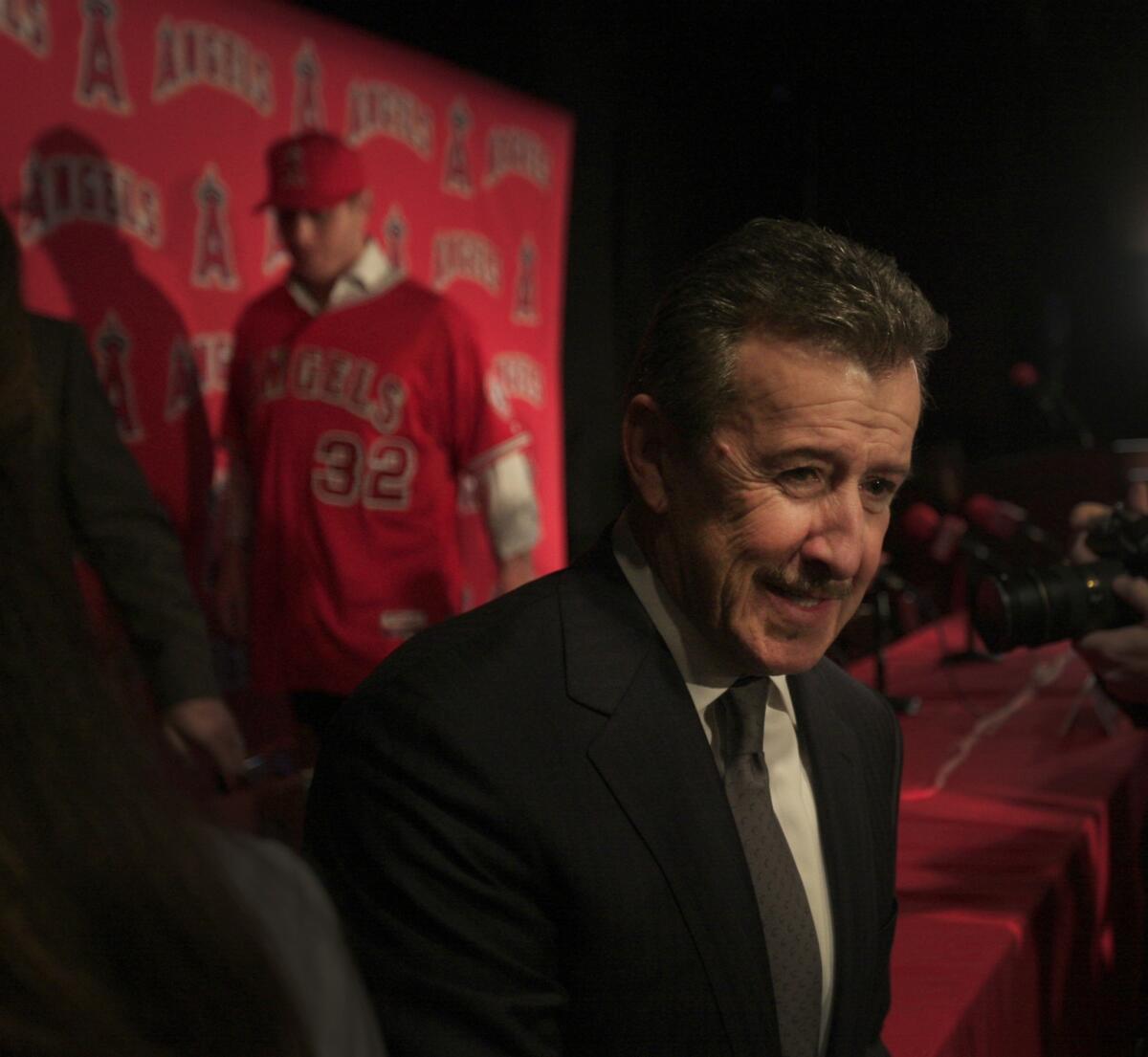Angels’ Arte Moreno could pay off in a big way for city of Anaheim

- Share via
For the 47 years the Angels have called Anaheim home, they have played in a stadium in the middle of a parking lot.
If there is a pot of gold beneath all those parking spaces, the city of Anaheim has failed to find it. The time has come for the city to let Arte Moreno try.
The Anaheim City Council made the right call last week, approving the parameters of a deal in which Moreno would pay for a new or renovated stadium in exchange for the right to develop the parking lot.
Anaheim Mayor Tom Tait, who cast the lone vote against the deal, spoke passionately against the concept of taking millions of dollars worth of city-owned land and handing it over to the billionaire owner of the Angels.
In an ideal world, Tait is right. But, to the extent this is a taxpayer giveaway, Tait ought to point the finger at his predecessors at City Hall.
The city offered the NFL Rams the chance to develop the parking lot, only to end up in protracted litigation against the Angels.
Gene Autry, the Angels’ founding owner, had no interest in developing the lot. Neither did the Walt Disney Co. Neither did the NFL.
A private developer proposed an indoor surf and snowboard park, but who needs fake waves and fake snow inside a giant refrigerator when Huntington Beach and Big Bear are so close?
In 1998, after the city paid $20 million toward the Angels’ last stadium renovation, the city manager called it “a slam dunk” that revenue from parking lot development would cover that contribution. Instead, Moreno essentially paid the city back, by putting a consistent winner on the field and triggering a lucrative city cut of record ticket sales.
Under their current lease, the Angels control how many parking spaces must be available for games. The Angels also can veto a variety of possible uses for the parking lot, from housing developments to fast-food restaurants. So the city might as well let Moreno try a development plan, lest he squash someone else’s.
If the land were that easy to develop, it would have been done by now. If Moreno fails, the city keeps the Angels at no cost, in a new or refurbished ballpark. If he succeeds, Anaheim also gets new jobs and businesses, and from them at least some of the tax revenue the city failed to generate for decades.
Moreno has guaranteed Anaheim nothing. It is disconcerting when the city consultant tells the City Council the Angels could be “impulsive and difficult to negotiate with” if they don’t get three more years to decide whether to stay — and could end up leaving anyway.
But, as Moreno once told Fortune magazine, “Leverage is the American way.”
If the city were starting from scratch, with a vacant chunk of property, the deal on the table would not be the best one. In this case, with restrictions on the land controlled by the guy who might be able to develop it, and with the city neither willing nor able to pay for ballpark construction, this is as good as it gets for Anaheim.
Twitter: @BillShaikin
More to Read
Go beyond the scoreboard
Get the latest on L.A.'s teams in the daily Sports Report newsletter.
You may occasionally receive promotional content from the Los Angeles Times.











